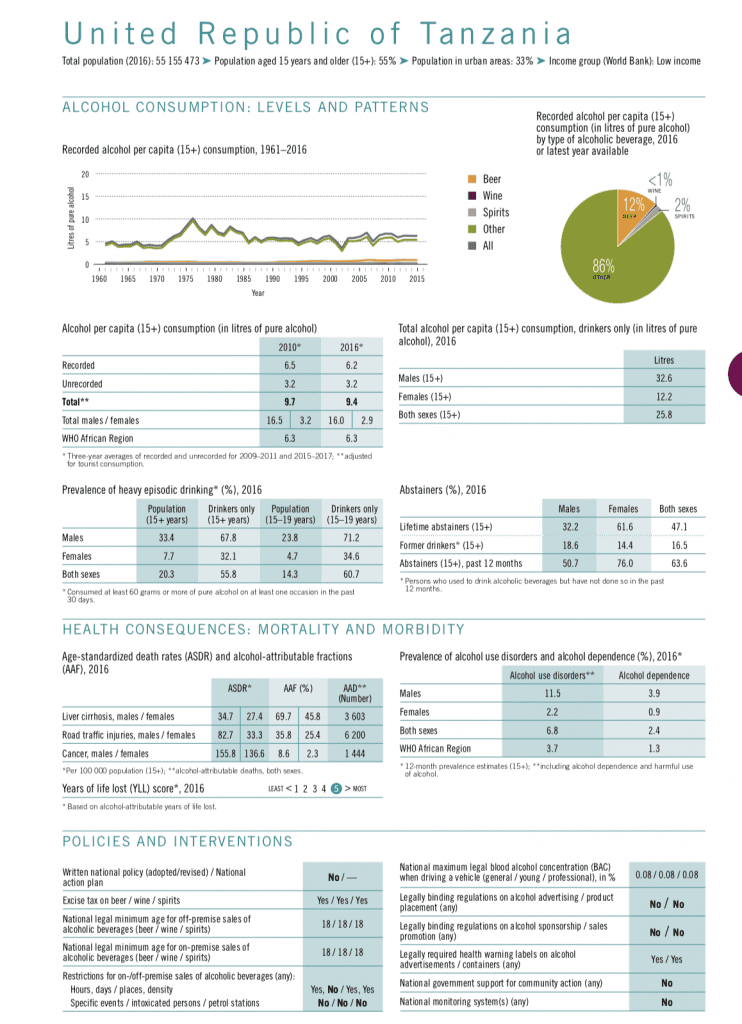With the general election campaign gaining momentum, civil society organization Crisis Resolving Centre (CRC) has called on candidates to incorporate alcohol prevention and control into their campaigns platforms through a statement released to commemorate World Alcohol-Free Day on October 3. The general election in Tanzania is set for October 28.
Despite a majority of people living alcohol-free in Tanzania and around the world, the alcohol industry aggressively targets these communities including children, youth and women. This targeting is a violation of human rights as it threatens the health, social and economic well-being and development in countries.
Alcohol harm in Tanzania
As Movendi International has reported in 2019, Tanzania is severely affected by the heavy non-communicable disease (NCD) burden. Alcohol use – one of the major risk factors for NCDs – has been rising in Tanzania over the years.
As the World Health Organization (WHO) reports, the per capita alcohol consumption in Tanzania is 9.4 litres of pure alcohol. When it comes to alcohol users, per capita alcohol use rises to a very high 32.6 litres of pure alcohol for Tanzanian men. Youth binge alcohol use is also of grave concern with almost two thirds (60.7%) of alcohol using young people between 15 to 19 years of age engaging in heavy episodic alcohol use.
Despite the severe alcohol harm in the country, Tanzania does not have a national alcohol policy and the few laws existing to regulate alcohol are sparse and inadequate to prevent and reduce harm.
As Movendi International reported in 2019, a study revealed a high density of alcohol-selling outlets and outdoor advertisements in Tanzania. It concluded that the abundance of alcohol-related cues, including their close proximity to places where youth congregate, factors into facilitating and increasing adolescent alcohol use in Tanzania. The study recommended, and participants agreed, that restricted access to alcohol would be effective to reduce alcohol consumption and related harm.
Incorporating a discussion about alcohol harm and corresponding alcohol policy solutions into election manifestos and the political vision in Tanzania is now needed more than ever. Evidence proves that alcohol is an obstacle to 14 of 17 sustainable development goals (SDGs). Therefore, by preventing alcohol harm countries can boost development. The WHO Global Alcohol Strategy provides guidance for policy makers of Tanzania on how to improve alcohol policies towards reaching development for all.
For further reading
A contested legacy: Julius Nyerere and the 2020 Tanzanian election.
Read more in The Conversation.

